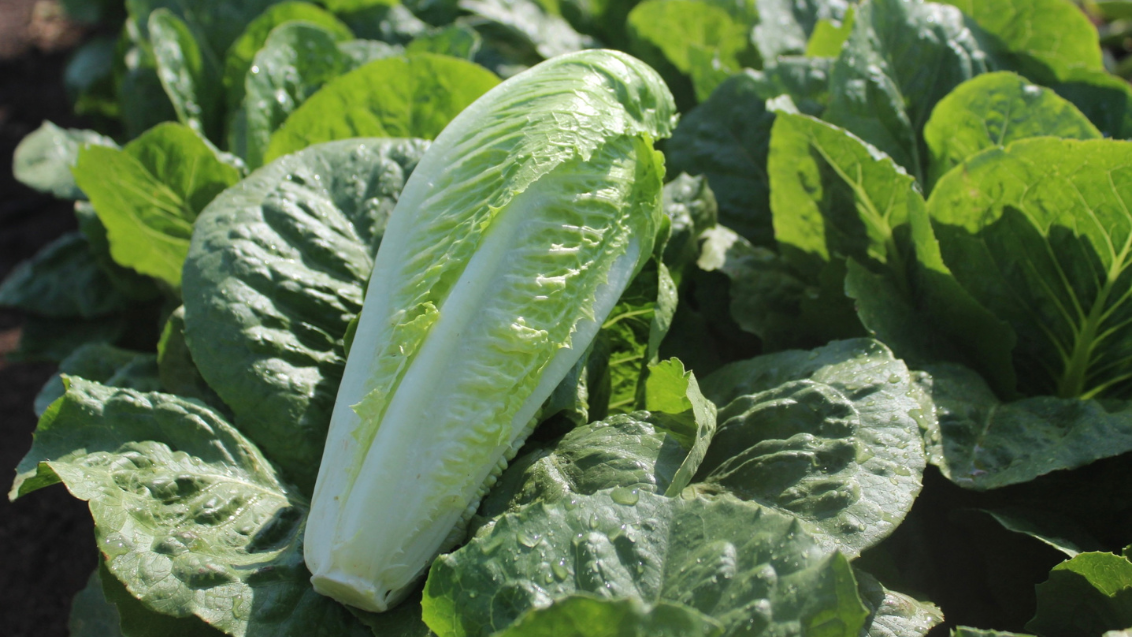USA
January 31, 2024

In the so-called “Salad Bowl” of the United States, growers have nurtured and produced lettuce over the past several decades. This prosperity is under threat, however. An emerging threat – Impatiens Necrotic Spot Virus (INSV), threatens grower livelihood and consumer access to nutritious lettuce varieties.
INSV rides in on the wings of western flower thrip and causes leaf spotting, ringspots, mosaic patterns, mottling, distortion of new growth, stunting, and eventually plant death. As of publication, the spread is limited to the Salinas Valley in California, U.S.
“It was first discovered in the early 2000s, but it wasn’t until 2019 that growers saw substantial crop loss,” said Jag Dhillon, Syngenta Vegetable Seeds Leafy and Brassica Portfolio Lead – Americas. “We started breeding for resistances early so growers would have solutions.”
Stampede romaine was the first resistant variety to hit the market, in 2022, providing growers with genetic resistance to this devastating disease. Today, Syngenta continues to innovate to bring that same resistance to all lettuce types grown in the Salinas Valley.
Bred with Grower Needs and Consumer Expectations in Mind
With a deep understanding of not only the agronomic needs growers have, but the taste and appearance demands provide, Syngenta breeds varieties that provide ease-of-use and marketability for growers.
“Environmental challenges are prevalent throughout the world. The launch of Stampede is an example of how Syngenta responds to these challenges,” said Mel Mekonnen, Breeder-Germplasm Development, Lettuce. “We create innovative products that are resistant to disease, require fewer inputs, and have better adaptability to environmental stressors, all while improving yield and shelf life.”
For growers, new INSV resistant varieties bring not only solutions for this new disease, but continuing protections against: downy mildew, tomato bushy stunt virus (TBSV), and Fusarium wilt race 1. It is also an upright and easy to harvest plant with smooth and straight ribs.
For consumers, taste, texture, and color are the most important considerations. With deep green, crisp leaves and exceptional flavor, Stampede continues to meet consumer expectations. Retailers can breathe a sigh of relief, knowing the shelf life, head quality, and taste will keep these lettuce varieties flying off their shelves.
Trial after trial, first-of-its kind innovation Stampede continues to prove itself. With unrivaled performance, yield and quality is protected with the simple selection of varieties with Syngenta’s INSV resistance traits.
Protecting the Future of Lettuce Production with Enhanced INSV Resistance
Romaine isn’t the only lettuce impacted and Syngenta is actively breeding resistance traits in to all other lettuce varieties with the potential to be impacted by INSV. Building on years of experience, breeders are working quickly to backcross this important trait into butter, iceberg, and more types as quickly as possible.
“As we look at the future of varieties we’ll introduce in this region, expect all of them to have INSV resistance,” Dhillon explained.
© 2024 Syngenta. Some or all of the varieties may be protected under one or more of the following: Plant Variety Protection, United States Plant Patents and/or Utility Patents and may not be propagated or reproduced without authorization.